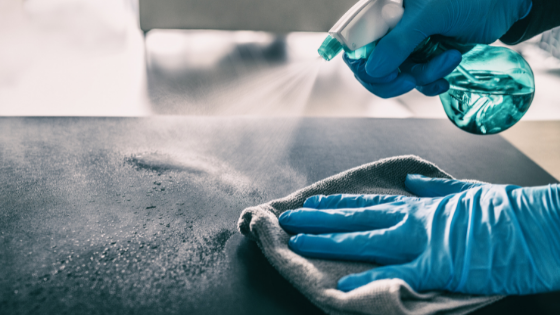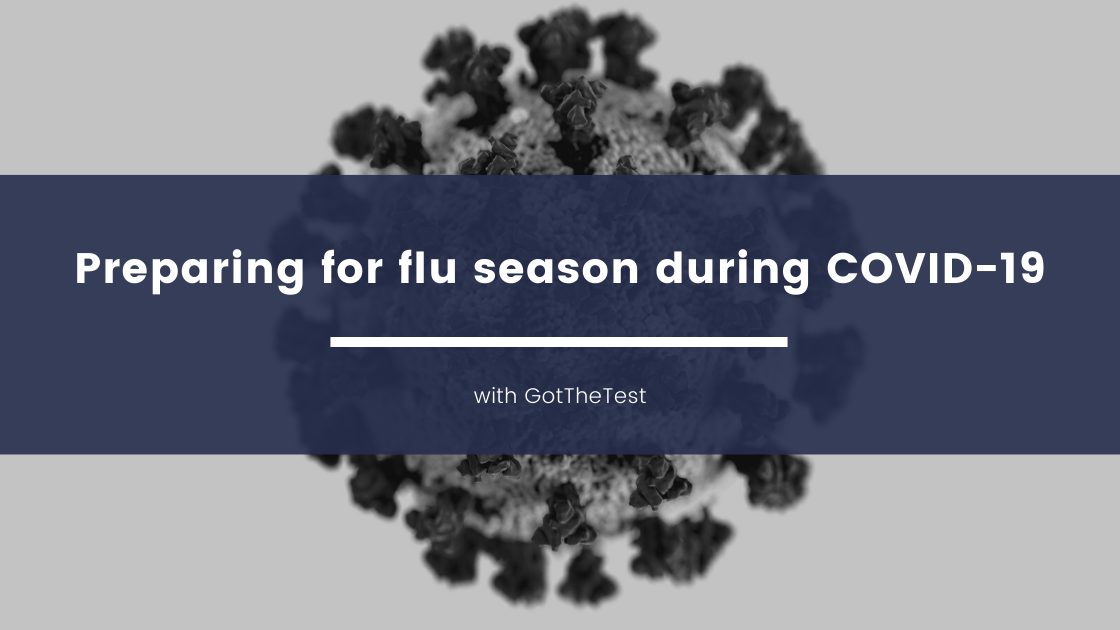As we all know (and maybe have experienced firsthand), a lot of the common flu and Covid-19 symptoms overlap. What's the big deal, you ask? If you mistake your Covid symptoms for the flu, you may be unknowingly spreading the disease. With flu season quickly approaching, the most important thing we can do is take preventative measures. Here are a few ways we suggest preparing for flu season during Covid:
1. Wash your hands
Think about all the things your hands touch throughout the day, but don't think about it too hard or you'll get grossed out. We touch gas pumps, bus handles, toilet flushers, public restroom sinks...the list goes on. Make a conscious effort to wash your hands for at least 20 seconds with soap and warm water. Wondering when to wash? As often as possible, but especially after using the bathroom, going to any public area, and after sneezing, coughing, and blowing your nose.

2. Carry sanitizers
Going right along with washing your hands, sometimes soap and water aren't available. Carry hand sanitizers and wipes with at least 60% alcohol to use in times that proper handwashing isn't an option.
3. Clean surfaces often
While you're out picking up hand sanitizer, add an antibacterial surface cleaner to your shopping list. Any high-touch surfaces should be wiped down with a disinfectant often. These surfaces are in your home, car, office, etc. Wipe it all down.

4. Avoid anyone who is sick
If a friend is complaining of an itchy throat, it would be in your best interest to keep your distance until they recover or get tested for the Covid. If you see your roommate blowing their nose a lot, it also is a good idea to keep clear. Remember that while Covid does have "common" symptoms each case can be very unique. It's always better to be safe than sorry.
5. Stay home if you're sick
Treat others how you want to be treated. If you're feeling under the weather with any flu or Covid symptoms, you should plan to stay home either until you recover or get a negative test result. Covid can be undetectable in some cases for up to 5 days. We highly recommend quarantining for five days after your onset of symptoms and then taking a Covid test.
6. Get your shots
It's more important than ever to get your annual flu shot and, of course, if you haven't gotten your Covid vaccines yet, you should put that on your fall to-do list.
7. Get tested
The best and only way to tell if your symptoms are the flu or Covid is by getting tested. Keep at-home Covid tests on hand so if you or your loved ones have symptoms, you'll be prepared. Even if you are vaccinated, it is crucial that you get tested if you're feeling symptoms due to the recent increase in breakthrough cases.
8. Follow CDC guidelines
Last, but certainly not least, follow the CDC guidelines for taking precautions against Covid. You can also educate yourself about the flu on their website.
If you're looking to keep your peace of mind during flu season, we highly recommend keeping our at-home tests on hand for emergencies. Spend less time trying to book hard-to-get testing appointments and more time being proactive about your health.



